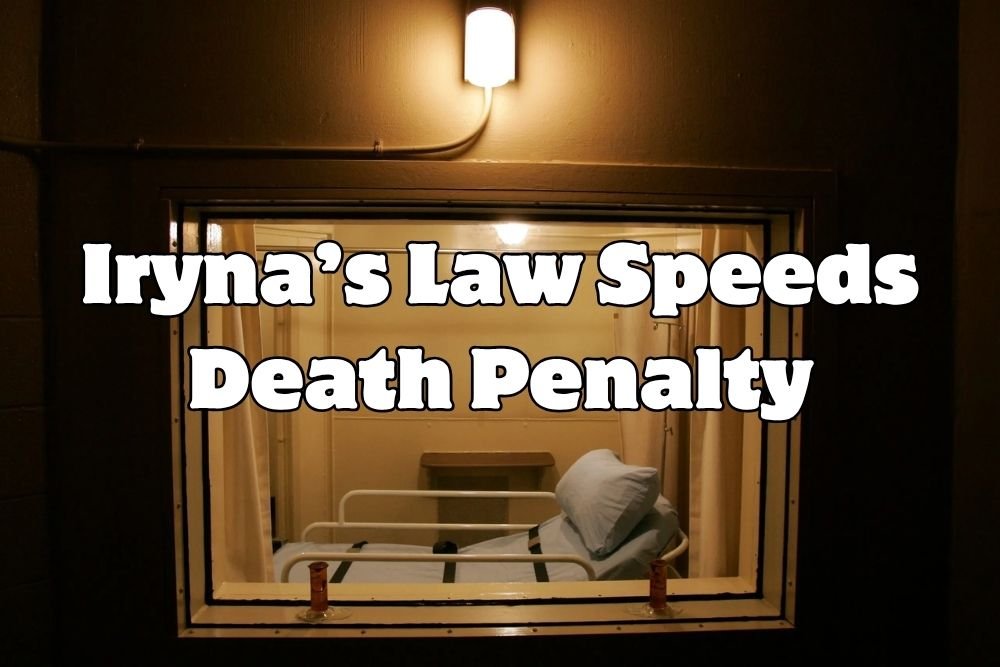North Carolina’s Iryna’s Law Speeds Death Penalty Reviews, Alters Execution Rules
CHARLOTTE, N.C. — North Carolina Governor Josh Stein has signed House Bill 307, also known as “Iryna’s Law,” marking a major shift in how the state handles death penalty reviews and execution procedures. The law follows public outrage over the fatal stabbing of 23-year-old Iryna Zarutska, who was killed on a Charlotte light rail in August.
Death Penalty Reviews Now Required Within Two Years
Under Iryna’s Law, the state must review death penalty cases within two years of sentencing — a move that supporters say ensures accountability, while critics argue it’s logistically impossible given North Carolina’s current court backlog.
“Many people aren’t even assigned an attorney for two years after they’re sentenced to death,” said Dr. Frank Baumgartner, a UNC-Chapel Hill professor who has studied capital punishment for decades. “That will definitely be litigated because it’s an arbitrary deadline, and the courts aren’t funded to deal with these things quickly.”
Baumgartner noted that nearly 70% of death sentences are overturned on appeal, with reversals often taking 25 to 30 years to resolve.
North Carolina Has 122 People on Death Row
The state currently has 122 inmates on death row, more than South Carolina, Georgia, Tennessee, and Virginia combined, according to the North Carolina Department of Adult Correction.
Despite that number, no executions have been carried out since 2006 due to ongoing legal challenges over execution methods and fairness in sentencing.
“North Carolina was once one of the most active users of the death penalty,” Baumgartner explained. “Since 1976, more than 400 people have been sentenced to death, but only 43 have been executed.”
Law Expands Execution Options Beyond Lethal Injection
One of the most controversial provisions in Iryna’s Law allows the Department of Adult Correction to adopt any execution method currently used by another state, as long as it hasn’t been ruled unconstitutional by the U.S. Supreme Court.
That means nitrogen hypoxia, firing squad, or even the gas chamber could be considered legal methods in North Carolina under the new law.
“The firing squad has come back, and Alabama has used nitrogen gas hypoxia,” Baumgartner said. “You can go back to the old-fashioned gas chamber — it’s all possible under this new language.”
Critics Warn of Legal and Ethical Challenges
Opponents say Iryna’s Law could overwhelm the court system, pressure defendants into plea deals, and create new constitutional disputes.
“The death penalty is really a bludgeon,” Baumgartner said. “It forces people to accept a plea agreement instead of going to trial. That’s a serious concern for fairness.”
So far, lawmakers have not responded to media questions about how the law will be implemented or funded.
Background: Who Was Iryna Zarutska?
The law is named in honor of Iryna Zarutska, a young woman who was stabbed to death on a Charlotte light rail in August. Her death reignited debate over violent crime and repeat offenders, leading to bipartisan support for tougher sentencing laws.
Supporters say the new legislation sends a strong message to violent offenders, while critics argue it risks rushed justice and constitutional violations.
How do you feel about North Carolina’s new death penalty law? Join the discussion and share your opinion at SaludaStandard-Sentinel.com.







